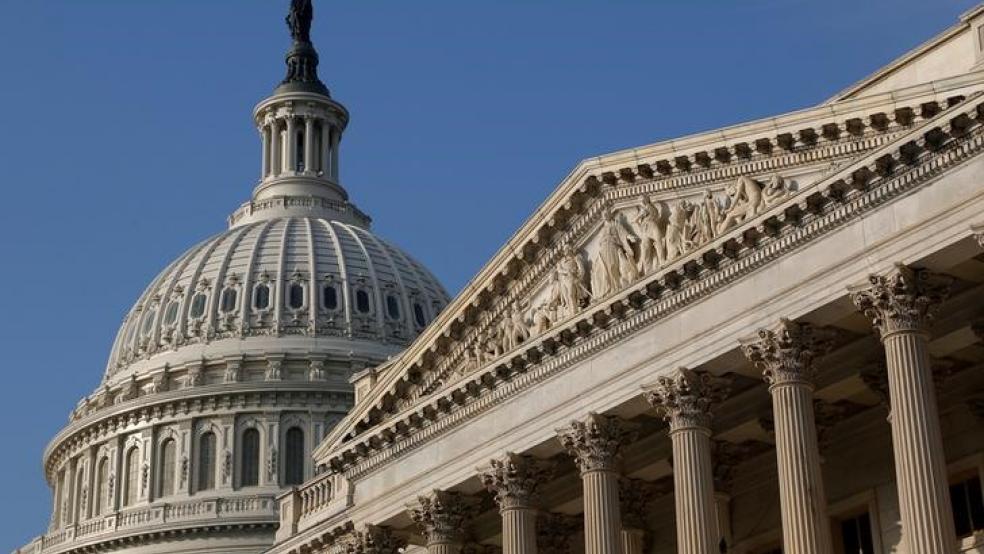Republicans control both chambers but have only a 52-to-48 Senate majority, meaning they can lose no more than two votes and still pass their tax bill, which Democrats oppose.
The following are the Republican lawmakers to watch:MARCO RUBIOThe Florida senator and former presidential contender said on Thursday he will vote against the tax plan if its proposed refundable amount for the child tax credit is not increased.Rubio told reporters that tax negotiators have made many changes to the legislation, including lowering the top rate paid by wealthy individuals. "My concern is that if you found the money to lower the top rate ... you can't find a little bit to at least somewhat increase the refundable portion of it?" Rubio asked. MIKE LEEThe Utah senator also is unhappy with the legislation's child tax credit approach and "undecided" on whether he will vote for the measure if there are no changes, his spokesman has told Reuters.Lee and Rubio are in negotiations aimed at making more of the tax credit refundable so more low-income families can benefit from it, his office said on Thursday.SUSAN COLLINSThe Maine moderate has said she cannot say whether she will be supportive "until I see the bill."Republican leaders persuaded Collins' to support the Senate's version of the bill earlier this month by promising to take up two healthcare provisions before the end of the year that would help mitigate her concerns about repealing Obamacare's "individual mandate."Republican tax writers also included amendments offered by Collins to woo her support. One preserves the deductibility of property-tax payments at a cap of $10,000. The final bill goes further by preserving the same deduction for state and local income-tax payments.BOB CORKERCorker, a deficit hawk from Tennessee, stalled momentum on the Senate tax bill earlier this month, then ended up voting against it due to its expansion of the federal deficit.Nonpartisan government estimates have shown the Republican tax bill will expand the deficit by about $1.5 trillion in a decade, or $1 trillion after accounting for economic growth.Corker has said this week of the compromise bill: "My deficit concerns have not been alleviated."JEFF FLAKEThe Arizona conservative voted for the Senate tax bill earlier this month after announcing he had succeeded in eliminating an $85 billion expensing "budget gimmick."Flake also got a commitment from Senate leaders and the Trump administration to work on permanent protections for immigrants brought to the United States illegally as children.Flake has not yet said whether he will support the compromise bill and was not specific about his hesitation in brief hallway remarks to reporters this week.JOHN MCCAIN The Arizona senator, war hero and former presidential nominee voted for the Senate bill but his office said this week he is undergoing treatment for side effects of cancer therapy at a military hospital outside Washington.McCain, 81, missed non-tax votes this week. His office said he "looks forward to returning to work as soon as possible." THAD COCHRANThe Mississippi senator, who also voted for the Senate bill, was absent from Capitol Hill for nearly a month earlier this year and has missed votes in recent weeks. Cochran's office said the 80-year-old senator is in Washington and expects to vote for tax legislation next week.MIKE PENCEVice President Mike Pence has delayed a planned trip to the Middle East in case his vote is needed to break a tie on the final tax bill. Pence has played the role of dealmaker during Senate negotiations, assuring both Collins and Flake their concerns about the legislation would be addressed.RON JOHNSONJohnson endorsed the Senate bill after getting a 23 percent tax deduction for pass-through business income. The Wisconsin senator has said he is encouraged by the compromise bill, which has a 20 percent tax deduction for pass-through business income, and a lower top individual rate of 37 percent. (Reporting by Amanda Becker, Richard Cowan, David Morgan and Susan Cornwell; Writing by Amanda Becker; Editing by Kevin Drawbaugh and Bill Trott)Factbox: Republicans to keep an eye on as Senate nears vote on tax bill

Aaron Bernstein



